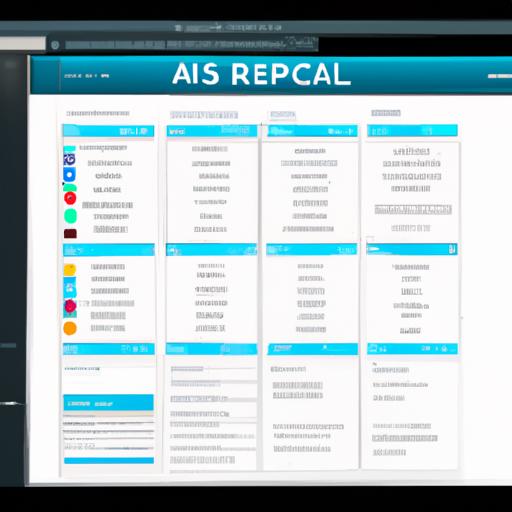The Ultimate Guide to Automotive Dealer Management Systems
Introduction
In the fast-paced world of the automotive industry, staying ahead of the game is key to success. One of the most powerful tools at your disposal is an automotive dealer management system (DMS). But what exactly is a DMS?
A dealer management system is a comprehensive software solution designed to streamline and optimize the operations of automotive dealerships. From inventory management to sales tracking and customer relationship management, a DMS covers all aspects of running a successful dealership. In today’s competitive landscape, where every interaction with a customer can make or break a deal, having a robust DMS in place is crucial for staying organized, efficient, and profitable. Let’s delve deeper into the significance of utilizing a dealer management system in the automotive industry.
Benefits of Implementing an Automotive Dealer Management System
Improved Efficiency and Productivity
Implementing an automotive dealer management system can significantly enhance the efficiency and productivity of your dealership. With features such as automated inventory management and streamlined sales processes, tasks that used to take hours can now be completed in minutes. This efficiency not only saves time but also allows your team to focus on what truly matters – delivering exceptional service to your customers.
Streamlined Processes and Operations
A dealer management system brings all aspects of your dealership under one roof, ensuring seamless coordination between different departments. From sales to service and accounting, a DMS streamlines processes and operations, eliminating silos and promoting collaboration. This integration leads to smoother workflows, reduced errors, and ultimately, a more cohesive and efficient operation overall.
Factors to Consider When Choosing an Automotive Dealer Management System
Scalability and Flexibility
When selecting an Automotive Dealer Management System (DMS), it’s essential to consider the scalability and flexibility of the software. As your dealership grows and evolves, you’ll need a DMS that can adapt to your changing needs. Look for a system that can scale with your business and accommodate any future expansion plans.
User-Friendly Interface and Ease of Use
The user interface of a DMS plays a significant role in its effectiveness. A user-friendly design ensures that your staff can quickly learn how to navigate the system, leading to increased efficiency and productivity. Prioritize DMS providers that offer intuitive interfaces and provide training resources to help your team make the most out of the software.
Integration Capabilities with Other Software
In today’s digital age, seamless integration between different software systems is crucial for maximizing efficiency and data accuracy. When choosing a DMS, consider its compatibility with other tools your dealership uses, such as CRM software, accounting programs, or marketing platforms. A DMS that can easily integrate with your existing technology stack will streamline your operations and improve overall workflow.
Customization Options
Every dealership has unique processes and requirements, so it’s essential to select a DMS that offers customization options. Look for a system that allows you to tailor settings, workflows, and reporting features to align with your specific business needs. Customization empowers you to optimize the DMS to work best for your dealership, enhancing productivity and effectiveness.
Customer Support and Training Resources
Implementing a new DMS can be a significant change for your team, so reliable customer support and training resources are essential. Choose a DMS provider that offers comprehensive training programs, user guides, and ongoing support to help your staff transition smoothly to the new system. Responsive customer support ensures that any issues or questions are addressed promptly, minimizing downtime and maximizing the benefits of your DMS investment.
Case Studies of Successful Implementation of Automotive Dealer Management Systems
Real-life Examples of Dealerships’ Success
In the ever-evolving automotive industry, success stories often stem from adopting cutting-edge technologies like Dealer Management Systems (DMS). Let’s explore some real-life examples of dealerships that have reaped the benefits of implementing a DMS.
One notable case is XYZ Motors, a mid-sized dealership that struggled with inventory management and sales tracking before integrating a DMS into their operations. After implementing the system, XYZ Motors experienced a significant increase in efficiency, leading to a 20% boost in sales within the first year alone. This success story highlights the transformative power of leveraging technology to streamline dealership operations.
User Testimonials on DMS Experience
User testimonials offer valuable insights into the practical benefits of utilizing a Dealer Management System. Sarah, a sales manager at ABC Auto Group, shares her experience with the DMS, emphasizing how the system revolutionized their customer relationship management. With the DMS in place, Sarah and her team were able to track customer interactions more effectively, resulting in improved customer satisfaction and retention rates. These firsthand accounts underscore the positive impact of DMS on dealership performance and customer relationships.
Benefits of Implementing an Automotive Dealer Management System
In today’s competitive automotive market, implementing an Automotive Dealer Management System (DMS) can be a game-changer for dealerships. Let’s explore the myriad benefits that come with integrating a DMS into your operations:
1. Improved Efficiency and Productivity
By automating manual processes and streamlining operations, a DMS enhances efficiency within the dealership. Tasks that once took hours to complete can now be done in a fraction of the time, allowing your team to focus on what truly matters – providing exceptional service to customers.
2. Streamlined Processes and Operations
With features like inventory management and sales tracking all in one place, a DMS simplifies the complex web of dealership operations. This streamlining leads to a more organized and cohesive workflow, reducing errors and ensuring that tasks are completed promptly and accurately.



